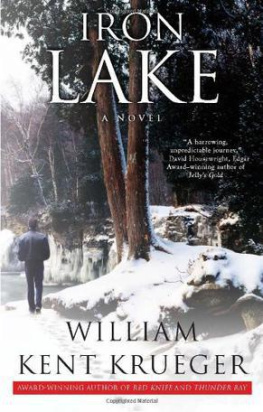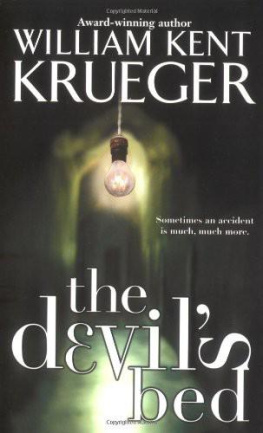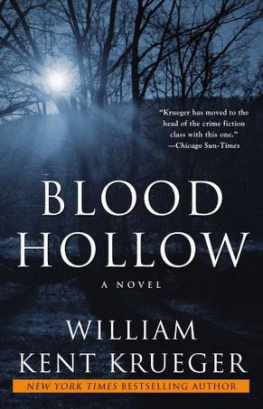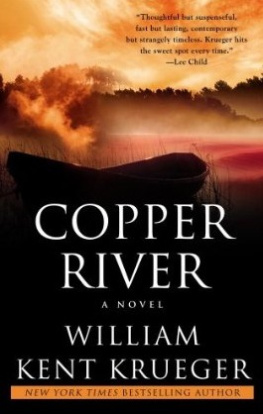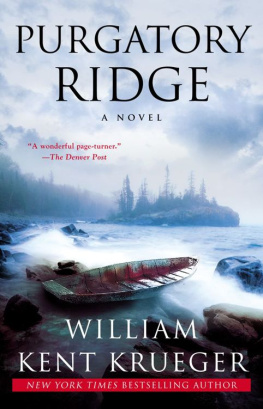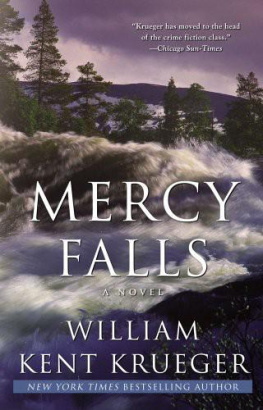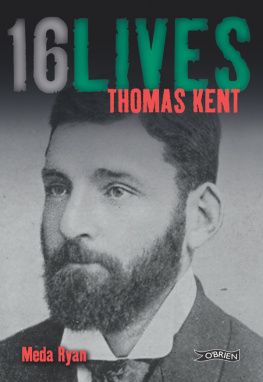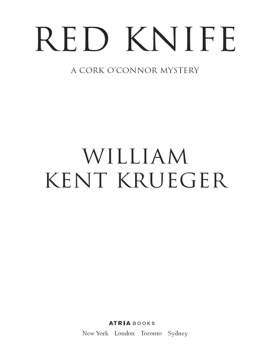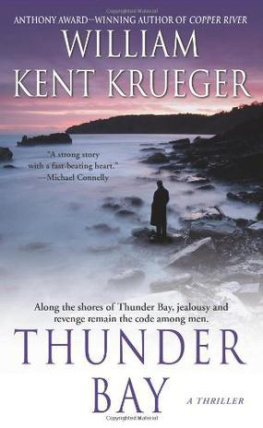IRON
LAKE
PROLOGUE

C ORK OCONNOR first heard the story of the Windigo in the fall of 1965 when he hunted the big bear with Sam Winter Moon. He was fourteen and his father was dead a year.
Sam Winter Moon had set a bear trap that autumn along a deer trail that ran from the stream called Widows Creek to an old logged-over area full of blueberries. Hed found scat at the creek and along the trail and in the blueberry meadow when the berries were ripe. The trap was made as it had been in old times. Against a tree, Sam built a narrow enclosure of branches with a single opening. Over the entrance he suspended a heavy log secured to a spring pole. The trap was baited with a mash of cooked fish, fish oils, and a little maple syrup. It was the first time Sam had ever built a bear trapa nearly lost Ojibwe traditionand hed invited Cork to help him with the process. Cork had no interest in it. Since his fathers death, nothing interested him. He figured Sams invitation had nothing to do with both of them learning the old ways together. It was just another good-intentioned effort to make him forget his grief, something Corcoran OConnor didnt want to do. In a way, he was afraid that to let go of the grieving would be to let go of his father forever. Still, out of politeness, he accepted Sam Winter Moons offer.
Late in the afternoon, they found the trap sprung, but the bear was not in it. They could see where the animal had fallen, slammed down by the weight of the great log, which, when theyd hauled and set it, Sam had calculated at over three hundred pounds. The log should have broken the bears back. Any normal black bear should have been there for them, pinned under the log, dead or almost dead. The trap was sprung. The log had fallen. But the bear had shrugged it off.
Sam Winter Moon turned to the boy gravely. I expect its hurt, he said. I got to go after it.
He looked away from Cork and didnt say anything about the boy going.
A bear like that, Cork said, a bear that can bounce a tree off his back, hed be worth seeing.
Sam Winter Moon knelt and ran his hand over the deep indentation the animals great paws had made in the soft ground. Risky, he said. He looked up at the boy. If you come, you got to do exactly as I say.
I will, Cork promised, feeling excited about something for the first time in a year. Exactly.
They fasted the rest of the day and breathed in the smoke of a cedar fire. At first light next morning, they blackened their faces with the cedar ash, a sign to the spirits of the deep woods that they had purified themselves. Sam tied back his long black-and-gray hair with a leather cord ornamented with a single eagle feather. They smoked tobacco and red willow leaves mixed with powdered aster root as a hunting charm, then covered themselves with tallow made of various animal fats to disguise their scent from the bear. In a small deer-hide sack that Sam hung on his back, he packed more tallow, matches, a whetstone, and a box of 180-grain cartridges for his rifle. He looked a little doubtfully at the cartridges. His was a .30-06 bolt-action Winchester. Fine for deer and small bears, he told Cork. But a bear like the one they were after, a bear that could shrug off a tree, that was something else. He gave Cork a canvas pack with bedrolls, cooking utensils, cooked wild rice, coffee, salt, and deer jerky. Finally he put in several long leather cords so that if they were given the bear, they could lash its body to a travois and cart it to a road where he could retrieve it with his truck. He hung his Green River hunting knife on his belt and slung his rifle over his shoulder.
At the sprung trap, they made a circle, looking for vegetation flattened in the bears passage. Sam found a sign, a clear line where the fallen birch leaves were pressed into the soft earth underneath, and they followed north, where the bear had gone.
Every fall Sam Winter Moon killed one bear. The smoked bear meat he shared with the other people on the Iron Lake Reservation, especially the elders who could not hunt or trap anymore but who still enjoyed the taste of the fat, richly flavored meat. He also shared the meat with Corks family. Corks mother was half Anishinaabe, and his father, although he was white, had been Sams friend for many years. The skins Sam sometimes sold for bounty, but more often he kept them for himself. He was grateful to the black bears for the meat they gave to him and the people of his band, but he told Cork, as they followed the trail that fall, that he would be grateful even for just a glimpse of this great animal whod shrugged off the log trap as if it were no more than a small bothersome thing.
Bears, Sam cautioned him, were the most difficult animals of the woods to track and to kill. They had decent eyes, good ears, and the best nose of any animal alive. They were smart, too. And if they were hurt, there was no thing a man would ever go against that was more dangerous. He loved hunting the bears. He appreciated the ritual of the hunt that joined hunter and hunted together with the land that was the mother of both man and bear. He enjoyed the challenge of tracking, using his own knowledge of the animal and the woods instead of hunting with dogs the way white men did.

